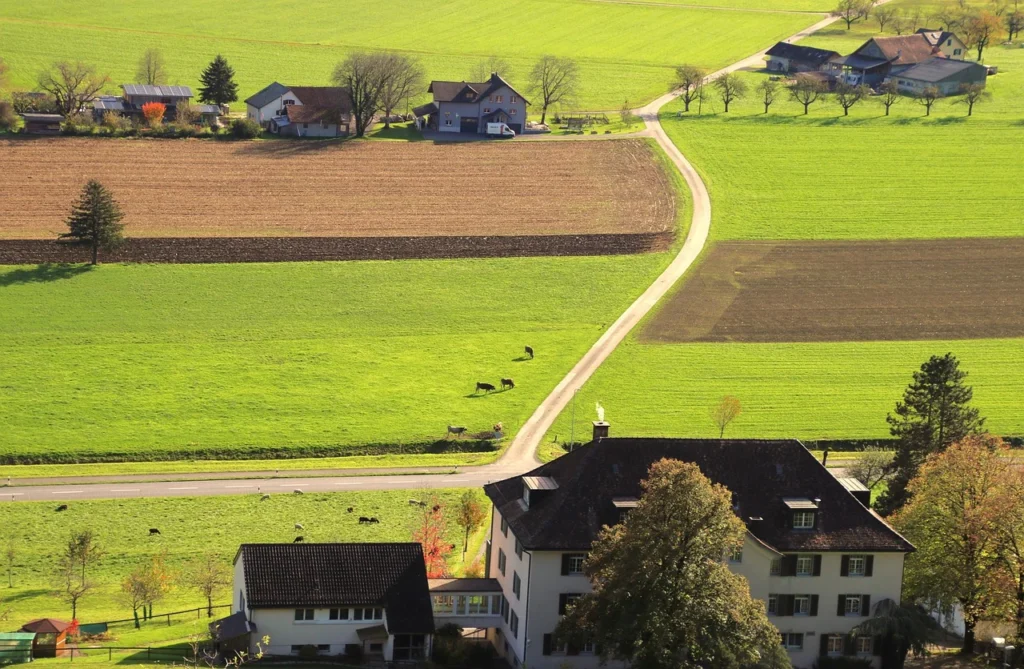Have you ever thought about how your investment can grow alongside green surroundings? Promoting not just financial returns but also the well-being of the environment and people. Surely managed farming is the solution you’ve been looking for. This special investment option provides security, sustainability, and the satisfaction of owning a piece of nature in a time of unpredictable markets. Join us as we explore the Managed Farmland Benefits and how it fits with your goals for a successful and peaceful future.

We at Nirmanakara turn this dream into a reality by offering professionally managed farming solutions that are customized to meet your requirements. Invest in a future that becomes happier, wealthier, and greener by taking the first step today.
1. Financial Stability and Growth
Managed Farmlands are a smart financial investment in addition to being a beautiful asset.

Consistent Income
Managed Farmlands are a dependable source of passive income since they produce revenue through agricultural yields. An experienced team works to optimize the revenues from crops, fruits, or lumber grown on your property.
Asset Appreciation
Since land is a limited resource, its value frequently increases with time. Particularly when well maintained, farmland turns into a highly valued resource that maintains and increases in value.
Portfolio Diversification
Investments in farmland act as a protection against recessions and inflation. Farmland is a physical asset, as compared to stocks or bonds, which guarantees stability in the face of market fluctuations.
2. Environmental Benefits
Managed farmland is a sustainable and good investment option because it benefits the environment.

Biodiversity Preservation
Sustainable farming methods that promote biodiversity are included into professionally managed farmlands. Crop rotation, organic farming, and the protection of regional wildlife and plants are all included in this.
Carbon Sequestration
Your farmland’s crops and trees absorb carbon dioxide, lowering greenhouse gas emissions. One way to actively fight climate change is to invest in managed farms.
Soil and Water Conservation
To ensure long-term agricultural output, modern farmland management uses strategies to minimize water use and stop soil erosion.
3.Personal and Lifestyle Benefits
Having managed farmland improves your personal life in addition to providing financial and environmental benefits.

Gateway to Nature
A peaceful diversion from the city is offered by managed farmlands. They help you reestablish a connection with nature, which benefits both your physical and emotional health
Weekend Retreats
A lot of maintained farmlands have recreational amenities, which makes them ideal for breaks and family vacations. Imagine picking fresh food on the weekends while surrounded by nature
Legacy and Heritage
Owning farmland creates a sense of pride and accountability in your family and develops a lasting asset that may be passed down through the generations.
4. Hassle-Free Management
The simplicity of ownership is highlighted by the term managed farmland. This is what makes it so practical:

Professional Oversight
From planting to harvesting, every part of the field is managed by skilled agricultural professionals, guaranteeing maximum yield without your direct involvement.
Regular Reporting
Complete transparency is provided to investors through frequent updates and reports on farm operations, yields, and financial returns
Customized Solutions
End-to-end services including property maintenance, legal compliance, and even agricultural produce marketing are included in the majority of managed farmland investments.
5. Supporting Rural Economies
Investments in managed farms play a major role in rural development.

Job Creation: You can contribute to the creation of jobs for farmers and laborers in rural areas by investing in farmlands.
Infrastructure Development: Your investment promotes the area’s improved roads, storage facilities, and irrigation systems.
Empowering Communities: Managed farms frequently work with nearby communities to improve their financial security and promote long-term development.
6. Tax Benefits and Incentives
Additionally, there may be tax benefits to investing in managed farms.

Agricultural Income Exemption: Income earned through agriculture is either exempt from taxes or subject to reduced rates of taxation in several nations.
Government Subsidies: To lower your operating expenses, governments frequently offer benefits for sustainable farming methods
Preservation of Wealth: Farmlands provide a safe way to protect and increase your wealth because they are less vulnerable to market fluctuations.
Wrapping Up
More than just an investment, managed farmland is a means of achieving personal fulfillment, environmental sustainability, and financial stability. Managed farmlands provide unique benefits whether you’re trying to broaden your assets, leave a lasting legacy, or just get back in touch with nature.Get in touch with us right now to discuss your managed agricultural solutions!
